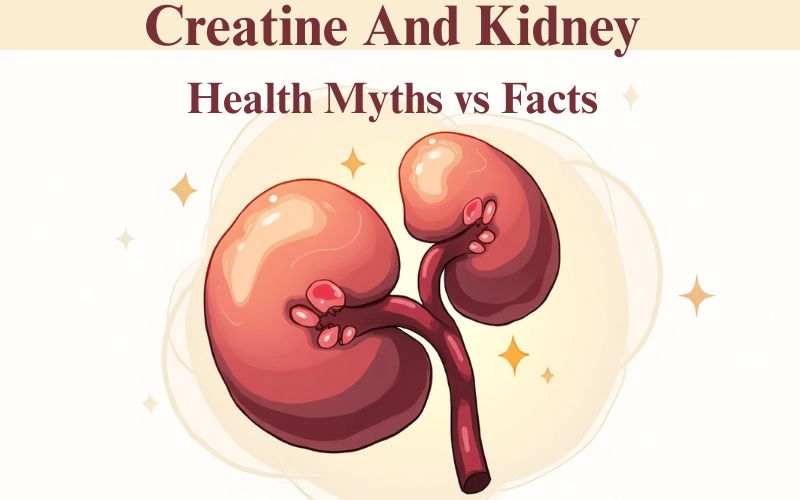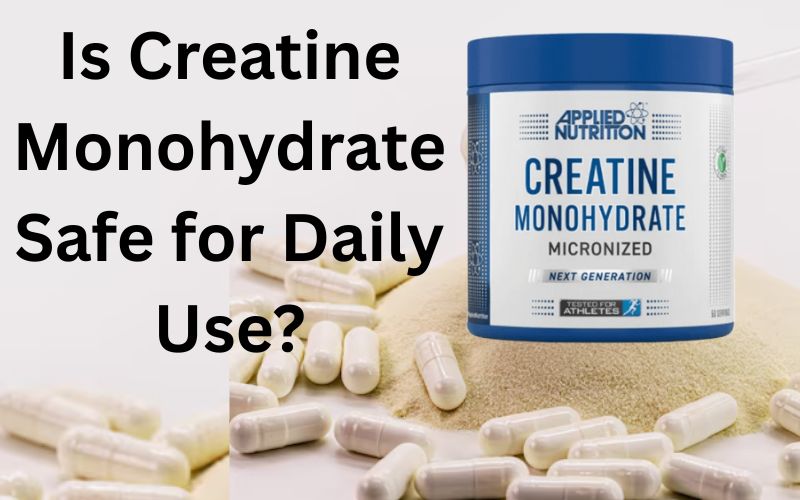Creatine is one of the most researched and popular supplements in the fitness world. Whether you’re an athlete, gym-goer, or someone looking to improve overall strength and performance, you’ve probably heard of it. But one question continues to surface: Is creatine safe long-term? What studies say may surprise you.
Let’s dive into the science, separate myths from facts, and discover whether creatine is truly a safe supplement for extended use.
Table of Contents
What is Creatine?
Creatine is a naturally occurring compound found in muscle cells. It helps your muscles produce energy during high-intensity exercise or heavy lifting. While your body produces some creatine, it’s also found in foods like red meat and seafood. However, many people turn to creatine supplements to boost their levels and improve physical performance.
The Rising Popularity of Creatine Supplements
Over the past few decades, creatine has become a staple in the supplement stacks of athletes, bodybuilders, and fitness enthusiasts. Its benefits include:
- Improved strength and power
- Enhanced muscle growth
- Quicker recovery between workouts
- Potential cognitive benefits
But alongside these benefits, safety concerns have emerged especially about long-term usage.
Is Creatine Safe Long-Term? What Studies Say
Multiple studies and scientific reviews have been conducted to determine the long-term safety of creatine supplementation. Let’s take a closer look at what the research shows.
1. Clinical Research Supports Long-Term Safety
According to the International Society of Sports Nutrition (ISSN), creatine monohydrate is not only effective but also safe when taken within recommended guidelines. Numerous studies, some lasting up to five years, have shown no significant adverse effects on healthy individuals.
For example, a 21-month study on college athletes taking creatine daily showed no harmful effects on kidney, liver, or cardiovascular health. Similarly, another study followed patients for over 4 years and found no evidence of organ damage or negative health outcomes.
So, when it comes to the question “Is creatine safe long-term? What studies say”, the consensus is clear: for healthy individuals, creatine is remarkably safe when used responsibly.
2. No Evidence of Kidney or Liver Damage in Healthy Users
One of the most persistent myths surrounding creatine is its supposed risk to kidney and liver health. However, this concern mostly stems from confusion between creatinine levels (a byproduct of creatine metabolism) and actual kidney function.
In clinical trials involving healthy participants, there has been no direct evidence linking creatine supplementation to kidney damage. It’s crucial to note that people with pre-existing kidney issues should consult their healthcare provider before using creatine.
3. Dosage and Usage Matter
As with any supplement, dosage is key. Most studies use a loading phase of 20 grams per day for 5–7 days, followed by a maintenance dose of 3–5 grams daily. Sticking to this range has shown no harmful effects, even with prolonged use.
Taking extremely high doses or using low-quality, contaminated products may pose risks. That’s why it’s important to choose high-quality creatine monohydrate from reputable brands.
4. Long-Term Use May Offer Cognitive Benefits
Emerging research suggests that creatine isn’t just beneficial for muscles it may also support brain health. Long-term creatine use has shown promise in improving memory, mental fatigue resistance, and cognitive function, especially in older adults or those under mental stress.
This adds another layer of interest to the ongoing question: Is creatine safe long-term? What studies say points toward not just safety, but potential added benefits beyond physical performance.
Who Should Avoid Long-Term Creatine Use?
While creatine is generally safe, it might not be suitable for everyone. You should avoid or consult your doctor before using creatine if you:
- Have kidney disease or are at risk
- Are pregnant or breastfeeding
- Take medications that affect kidney function
- Have liver issues
In such cases, it’s best to get medical advice before starting or continuing long-term use.
How to Take Creatine Safely for the Long-Term
If you’re considering adding creatine to your long-term fitness routine, here are a few tips to ensure safety:
- Stick to the recommended dosage (3–5g daily)
- Stay hydrated—creatine pulls water into muscles
- Choose trusted brands with third-party testing
- Cycle if desired, although it’s not necessary for everyone
- Monitor your health with regular check-ups if you plan to use it long-term
By following these guidelines, you can enjoy the benefits of creatine while minimizing any potential risks.
Final Thoughts: Is Creatine Safe Long-Term? What Studies Say
In conclusion, the science overwhelmingly supports the safety of long-term creatine use in healthy individuals. Clinical studies spanning months and even years have shown no serious adverse effects when the supplement is taken responsibly.
So, Is creatine safe long-term? What studies say gives us confidence to continue using this powerful supplement to support strength, endurance, and even cognitive performance provided it’s used correctly.
FAQs
Q: Can teenagers use creatine safely for a long time?
A: While some studies suggest that creatine may be safe for teens, especially athletes, it’s best to consult with a healthcare professional or sports nutritionist before use.
Q: Do I need to cycle creatine?
A: There’s no solid evidence suggesting that cycling is necessary. However, some people choose to cycle to give their body a break or reset tolerance.
Q: Will creatine make me gain fat or water weight long-term?
A: Creatine may cause temporary water retention in muscles, but it does not cause fat gain. In fact, it may help improve body composition when combined with training.
Q: Can I take creatine with other supplements?
A: Yes, creatine pairs well with other supplements like protein powder, BCAAs, and pre-workouts. Just make sure to follow proper dosage guidelines.
Q: What’s the best time to take creatine for long-term benefits?
A: While timing isn’t critical, many users take creatine post-workout with carbs or protein to maximize absorption and muscle uptake.
Ready to Get Started?
If you’re looking for high-quality, safe, and effective creatine supplements, check out our curated collection at Nutritional World Pakistan. We offer only the most trusted brands to help you reach your fitness goals—safely and confidently.


























